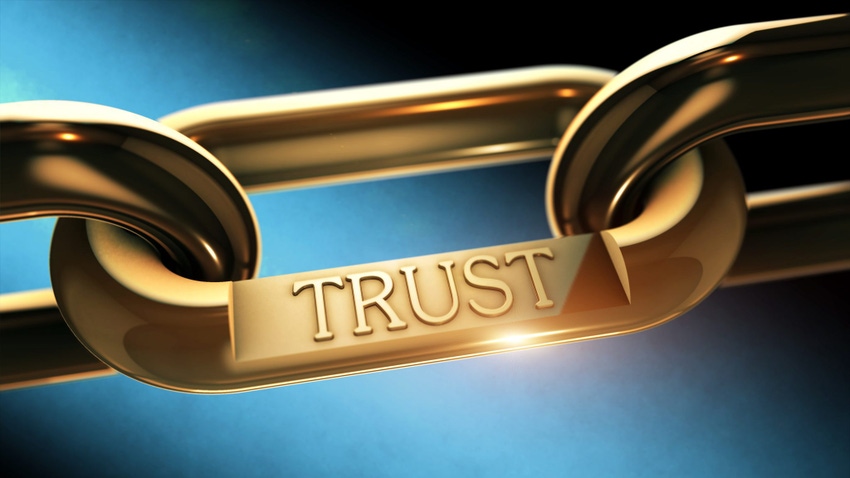More than just security, the New Trust Standard calls for transparency, accountability, social responsibility, resiliency and privacy.
October 20, 2021

Sponsored by Cisco
As we ride the biggest digital wave in history, the internet has become fundamental to how society maintains livelihoods, conducts business, and stays connected. However, it comes with constant evolution of risk. Phishing, service disruptions, ransomware and other attacks hijack data, destroy sources of income, steal identities and invade privacy, derail nations, and change the course of history. Effectively managing the revolving door of risks calls for a new era of trust. More than just security, it calls for transparency, accountability, social responsibility, resiliency and privacy.
It calls for a new trust standard.
The digital wave requires that we balance technical capability that supports our purpose with the need to secure and trust those capabilities. The hyperconnectivity of today’s world means that we have shared risk and a shared security posture. Not knowing what is in our environment, understanding how hardware and software were made or having evidence of how interconnected systems are secured can put us all at risk. That is where trust and transparency come in. It requires the transparent exchange of information so that we can all manage risk collectively.
A Trust Benchmark for Digital Transformation
Today, I would like to share our perspective on The New Trust Standard, a compilation of what we’ve learned by talking and collaborating with our customers, partners, industry peers, regulators, and academia. By embracing The New Trust Standard, we’re working to turn what was once a stated value into evidence-based trust, security, and privacy.
We are hearing what is being asked of us, rising to deliver it and working to define what the digital future looks like with trust at its foundation.
Zero trust architecture shifts the paradigm and forces evidence-based assertions about the security before allowing access. This mindset shift is in its early stages, but ultimately must pervade all systems whose own security can have far-reaching impacts on the products and services delivered to their customers.
Trusted supply chain verifies the trustworthiness of the complex ecosystem of vendors that make the technology we ultimately sell or consume. It’s beyond geography-based security and privacy; it must be steeped in the supply chain process and in the technology itself.
Data governance works to ensures data is appropriately handled and secured, providing access only to those who truly should have access. Customers expect providers to keep their data protected and secure; this is a fundamental requirement of trust in the digital world. Customers also want to be informed about how their data is collected, used and managed. Ultimately, customers want control of their data.
Transparency is crucial to understanding and mitigating risk, especially as it relates to issues that could negatively impact people or businesses. Technical or other issues that could potentially expose organizations to risk must be clearly communicated.
Certifications and regulatory compliance are necessary milestones on the journey to explicit trust. While these will continue to evolve as we collectively work to keep up with the rapidly changing technology landscape, it will be essential to keep trust and pragmatism at the core of these discussions.
In parallel with the New Trust Standard, we are also releasing the Cisco 2021 Consumer Privacy Survey. We engaged 2,600 respondents across 12 countries to better understand consumers’ expectations in respect to a business’ data practices. Privacy remains a cornerstone of trust. Transparency and control of data, especially related to new innovations, are integral to building and maintaining consumer confidence.
Our aspiration is to see the New Trust Standard replace confusion with clarity. Apprehension with assurance. Uncertainty with confidence. And constraint with the freedom to innovate. It has already changed the way Cisco does business by creating a higher bar for serving our customers and providing the secure solutions they need to thrive in the digital world. We share this framework and our privacy survey to further the essential discussion of turning trust from a sentiment to a quantifiable and verifiable agreement.
October is National Cyber Security Awareness Month. It’s a great time to join in activities and discussions to advance cybersecurity across industries. I’d love to hear more about ways others are building in verifiable trust into their business, solutions and operations.
Learn more about National Cyber Security Awareness Month, the New Trust Standard and our Consumer Privacy Report on our Trust Center.
This guest blog is part of a Channel Futures sponsorship.
Read more about:
MSPsAbout the Author(s)
You May Also Like


